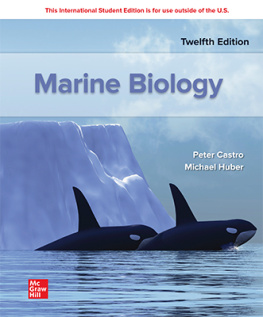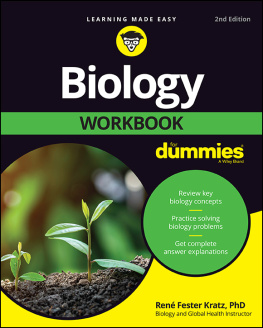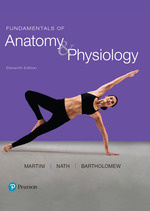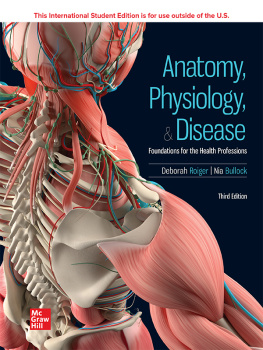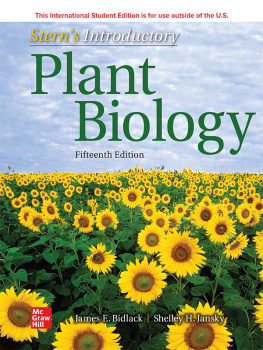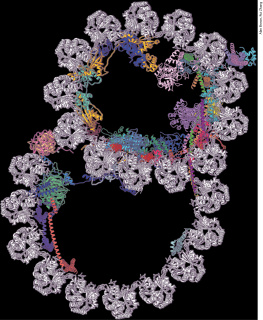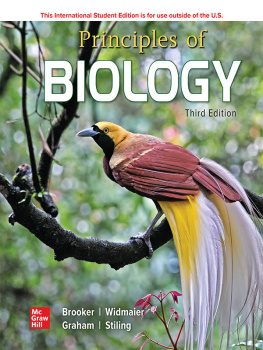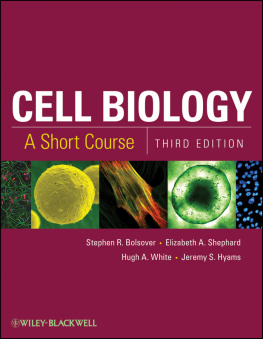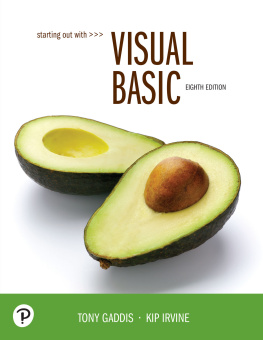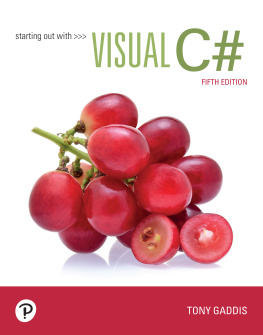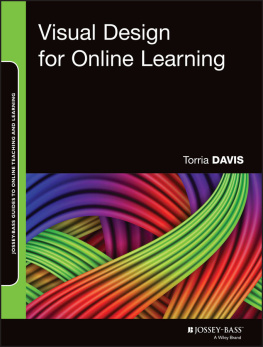Contents
Landmarks
List of Figures
List of Tables
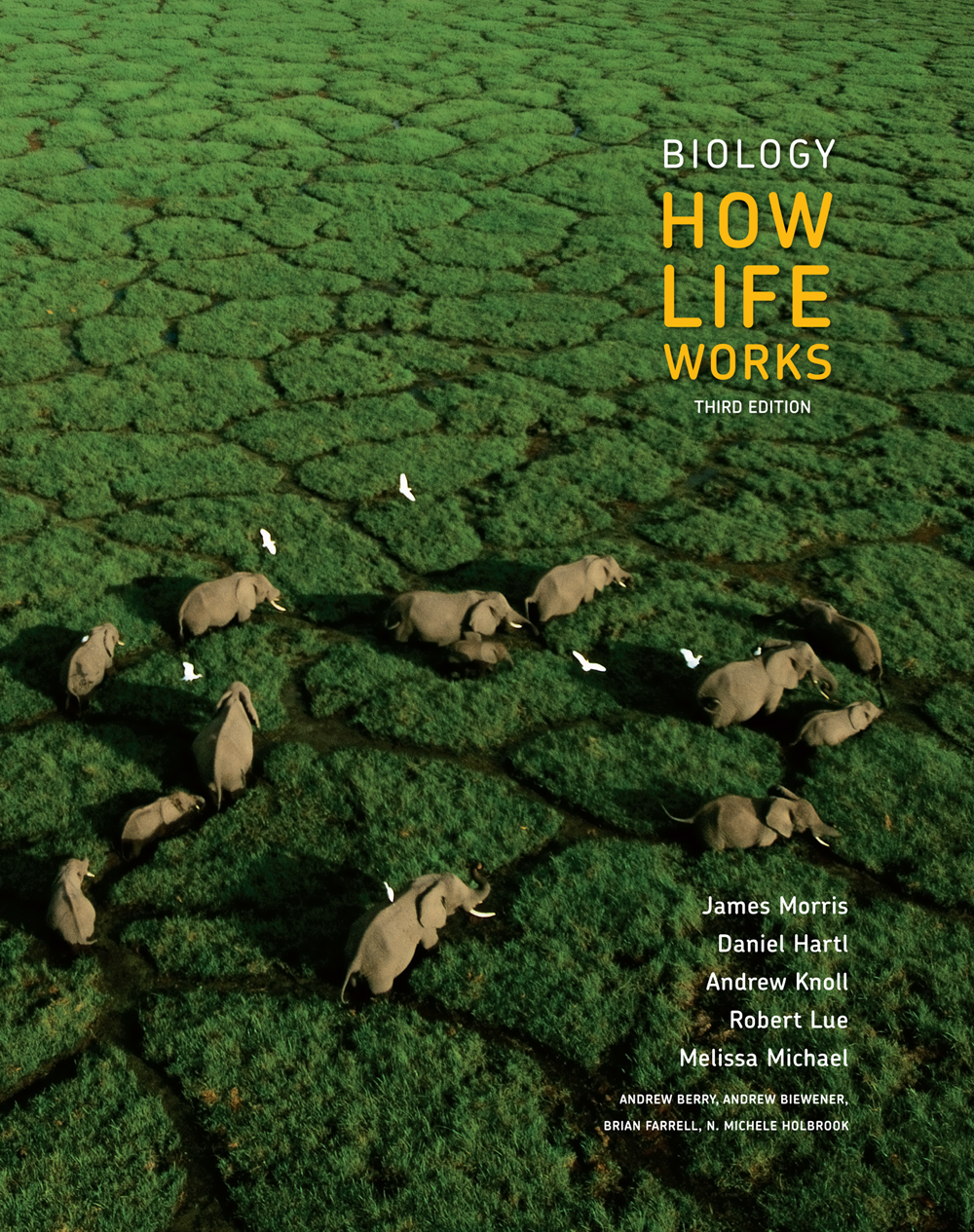
The front cover shows a vast area of grassland in which elephants are walking across the patches of grass separated by pathways.
BIOLOGY
HOW LIFE WORKS
VICE PRESIDENT, STEM Daryl Fox
PROGRAM DIRECTOR Andrew Dunaway
EXECUTIVE PROGRAM MANAGER Lisa Lockwood
DIRECTOR OF DEVELOPMENT Lisa Samols
SENIOR DEVELOPMENT EDITOR Susan Moran
SENIOR TEACHING AND LEARNING CONSULTANT Elaine Palucki
DEVELOPMENT EDITOR Erin Mulligan
ASSESSMENT DEVELOPMENT EDITORS Susan Teahan, Jennifer Hart, Anna Bristow
EDITORIAL ASSISTANTS Alexandra Hudson, Justin Jones, Casey Blanchard
EXECUTIVE MARKETING MANAGER Will Moore
MARKETING ASSISTANT Maddie Inskeep
PROJECT MANAGER Karen Misler
DIRECTOR OF CONTENT, LIFE SCIENCES Jennifer Driscoll Hollis
CONTENT DEVELOPMENT MANAGER, BIOLOGY Amber Jonker
LEAD CONTENT DEVELOPER, BIOLOGY Mary Tibbets
CREATIVE DIRECTOR Emiko Paul
MEDIA EDITORS Michael Jones, Amy Thorne, Jennifer Compton
DIRECTOR, CONTENT MANAGEMENT ENHANCEMENT Tracey Kuehn
SENIOR MANAGING EDITOR Lisa Kinne
SENIOR CONTENT PROJECT MANAGERS Liz Geller, Martha Emry
DIRECTOR OF DIGITAL PRODUCTION Keri deManigold
SENIOR MEDIA PROJECT MANAGER Chris Efstratiou
COPYEDITOR Jill Hobbs
MEDIA PERMISSIONS MANAGER Christine Buese
PHOTO RESEARCHER Lisa Passmore
DIRECTOR OF DESIGN, CONTENT MANAGEMENT Diana Blume
DESIGN SERVICES MANAGER Natasha A. S. Wolfe
TEXT DESIGNER Hespenheide Design
COVER DESIGNER John Callahan
ART MANAGER Matthew McAdams
ILLUSTRATOR Imagineering
SENIOR CONTENT WORKFLOW MANAGER Paul Rohloff
COMPOSITION Lumina Datamatics, Inc.
COVER PHOTO George Steinmetz/Getty Images
Library of Congress Control Number: 2018961482
ISBN-13: 978-1-319-20691-8 (epub)
2019, 2016, 2013 by W. H. Freeman and Company
All rights reserved.
1 2 3 4 5 6 22 21 20 19 18
W. H. Freeman and Company
One New York Plaza
Suite 4500
New York, NY 10004-1562
www.macmillanlearning.com
To all who are curious about life and how it works
ABOUT THE AUTHORS
JAMES R. MORRIS is Professor of Biology and Chair of the Program in Health: Science, Society, and Policy at Brandeis University. He teaches a wide variety of courses for majors and non-majors, including introductory biology, evolution, genetics and genomics, epigenetics, comparative vertebrate anatomy, and a first-year seminar on Darwins On the Origin of Species. He is the recipient of numerous teaching awards from Brandeis and Harvard. His research focuses on the rapidly growing field of epigenetics, making use of the fruit fly Drosophila melanogaster as a model organism. He currently pursues this research with undergraduates in order to give them the opportunity to do genuine, laboratory-based research early in their scientific careers. Dr. Morris received a PhD in genetics from Harvard University and an MD from Harvard Medical School. He was a Junior Fellow in the Society of Fellows at Harvard University, and a National Academies Education Fellow and Mentor in the Life Sciences.
DANIEL L. HARTL is Higgins Professor of Biology in the Department of Organismic and Evolutionary Biology at Harvard University and Professor of Immunology and Infectious Diseases at the Harvard T. H. Chan School of Public Health. He has taught highly popular courses in genetics and evolution at both the introductory and advanced levels. His lab studies molecular evolutionary genetics and population genetics and genomics. Dr. Hartl is the recipient of the Thomas Hunt Morgan Medal, Samuel Weiner Outstanding Scholar Award, and Gold Medal of the Stazione Zoologica Anton Dohrn. He is a member of the National Academy of Sciences and the American Academy of Arts and Sciences. He has served as President of the Genetics Society of America and President of the Society for Molecular Biology and Evolution. Dr. Hartls PhD is from the University of Wisconsin, and he did postdoctoral studies at the University of California, Berkeley. Before joining the Harvard faculty, he served on the faculties of the University of Minnesota, Purdue University, and Washington University Medical School. In addition to publishing more than 400 scientific articles, Dr. Hartl has authored or coauthored 30 books.
ANDREW H. KNOLL is Fisher Professor of Natural History in the Department of Organismic and Evolutionary Biology at Harvard University. He is also Professor of Earth and Planetary Sciences. Dr. Knoll teaches introductory courses in both departments. His research focuses on the early evolution of life, Precambrian environmental history, and the interconnections between the two. He has also worked extensively on the early evolution of animals, mass extinction, and plant evolution. He currently serves on the science team for NASAs mission to Mars. Dr. Knoll received the Phi Beta Kappa Book Award in Science for Life on a Young Planet. In 2018, he was awarded the International Prize for Biology. He is a member of the National Academy of Sciences and a foreign member of the Royal Society of London. He received his PhD from Harvard University and then taught at Oberlin College before returning to Harvard.
ROBERT A. LUE is Professor of Molecular and Cellular Biology at Harvard University and the Richard L. Menschel Faculty Director of the Derek Bok Center for Teaching and Learning. Dr. Lue has a longstanding commitment to interdisciplinary teaching and research and chaired the faculty committee that developed the first integrated science foundation in the country to serve science majors as well as pre-medical students. The founding director of Life Sciences Education at Harvard, Dr. Lue led a complete redesign of the introductory curriculum, redefining how the university can more effectively foster new generations of scientists as well as science-literate citizens. Dr. Lue has also developed award-winning multimedia, including the animation The Inner Life of the Cell. He has coauthored under-graduate biology textbooks and chaired education conferences on college biology for the National Academies and the National Science Foundation and on diversity in science for the Howard Hughes Medical Institute and the National Institutes of Health. In 2012, Dr. Lues extensive work on using technology to enhance learning took a new direction when he became faculty director of university-wide online education initiative HarvardX; he now helps to shape Harvards engagement in online learning to reinforce its commitment to teaching excellence. Dr. Lue earned his PhD from Harvard University.
MELISSA MICHAEL is Director for Core Curriculum and Assistant Director for Undergraduate Instruction for the School of Molecular and Cellular Biology at the University of Illinois at Urbana-Champaign. A cell biologist, Dr. Michael primarily focuses on the continuing development of the Schools undergraduate curricula. She is engaged in several projects aimed at improving instruction and assessment at the course and program levels. Her research focuses primarily on how creative assessment strategies affect student learning outcomes and how outcomes in large-enrollment courses can be improved through the use of formative assessment in active classrooms.
ANDREW BERRY is Lecturer in the Department of Organismic and Evolutionary Biology and an undergraduate advisor in the Life Sciences at Harvard University. With research interests in evolutionary biology and history of science, he teaches courses that either focus on one of the areas or combine the two. He has written two books:


